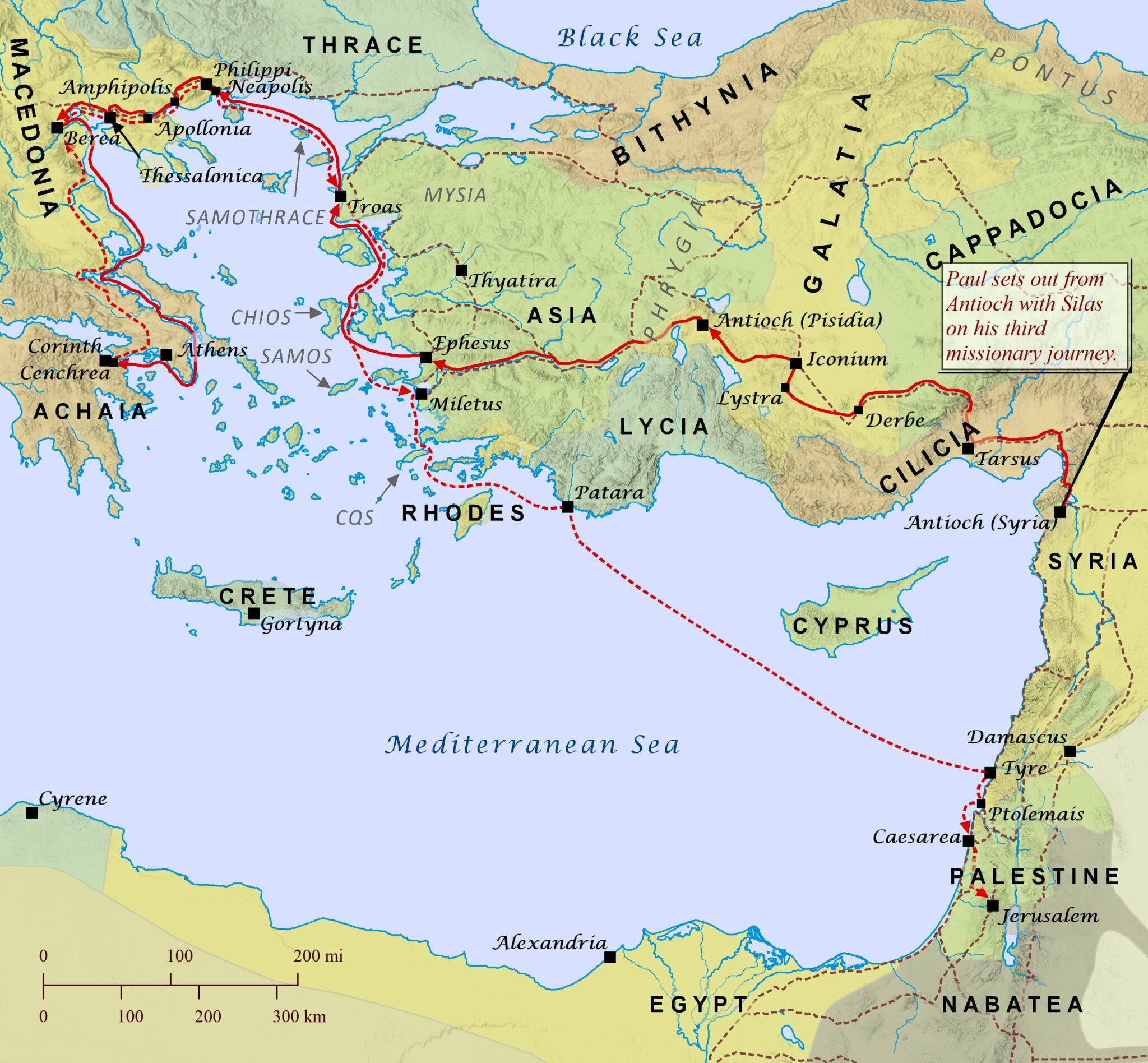God is willing to retrofit those who choose to reject Him as vessels of destruction, just as He did when Pharaoh continued to reject Him. But God has created other vessels (believers) to demonstrate His glory through His mercy—to us who believe in His son.
Paul now asks a rhetorical question: What if God, although willing to demonstrate His wrath and to make His power known, endured with much patience vessels of wrath prepared for destruction? (v 22). The expected answer to this rhetorical question is “And He did.” God did endure with much patience.
Paul follows this with an explanation why God did this, saying And He did so to make known the riches of His glory upon vessels of mercy, which He prepared beforehand for glory (v 23).
In the Greek, the two words translated to English as prepared (the first in verse 22 and the second in 23) are two different words. The first prepared in the phrase endured with much patience vessels of wrath prepared for destruction is the word “katartizo” which can also be translated as “mend” or “retrofit.”
This prepared “katartizo” is in the “middle voice” which means something acting upon itself. These are people that chose wrath. Paul was telling his audience that those vessels (or people) who reject God, will be like those in Romans 1 who incur God’s wrath when they are turned over by God to their own passions. We saw this progression of God’s wrath in Romans 1:
- Therefore God gave them over in the lusts of their hearts to impurity (Romans 1:24)
- For this reason God gave them over to degrading passions (Romans 1:26)
- And just as they did not see fit to acknowledge God any longer, God gave them over to a depraved mind (Romans 1:28).
In each case, God “gave them over” to that which they desired.
They were then retrofitted for destruction by virtue of their choices.
Paul infers that God desires for these vessels to change, having great patience, but when they do not (just as Pharaoh did not), God will turn them over to destruction. God made a powerful example of Pharaoh by freeing the Israelites from him and destroying his army. And that was made possible by Pharaoh’s own choices to follow after his own hardened heart (Exodus 8:15, 32, 9:34). After Pharaoh hardened his heart, God hardened it further, that he might receive the full portion of his choice.
The second use of prepared in verse 23 translates the word “proetoimazo,” which means prepared beforehand. Here, Paul is discussing believers who were prepared by God, chosen for mercy and glory through faith in Jesus.
In verse 23 we see that God has prepared beforehand individuals for mercy and glory to make His glory known.
While God is willing to hand people who reject Him over to destruction, as Pharaoh experienced by the destruction of his army, He has also prepared believers to demonstrate His glory through His mercy to us: And he did so to make known the riches of His glory upon vessels of mercy, which He prepared beforehand for glory (v 23).
Biblical Text
22 What if God, although willing to demonstrate His wrath and to make His power known, endured with much patience vessels of wrath prepared for destruction? 23 And He did so to make known the riches of His glory upon vessels of mercy, which He prepared beforehand for glory,
Check out our other commentaries:
-
Deuteronomy 34:4-8 meaning
Having viewed the Promised Land from the top of Mount Nebo, Moses died there in the land of Moab. The LORD Himself buried him in...... -
Isaiah 53:6 meaning
Isaiah prophesies that all of us like sheep have gone astray in our sin, but instead of punishing us, the LORD caused the sin of...... -
Matthew 22:41-46 meaning
With aid of Psalm 110, Jesus asks the Pharisees a series of questions about how the Messiah is both the Lord of David and his...... -
Deuteronomy 22:23-27 meaning
Moses described what to do about sexual infidelity committed by a virgin who was engaged to be married....... -
Matthew 5:4 meaning
The second statement (B) of Jesus’s chiasm focuses on mourning as an expression of repentance.......



